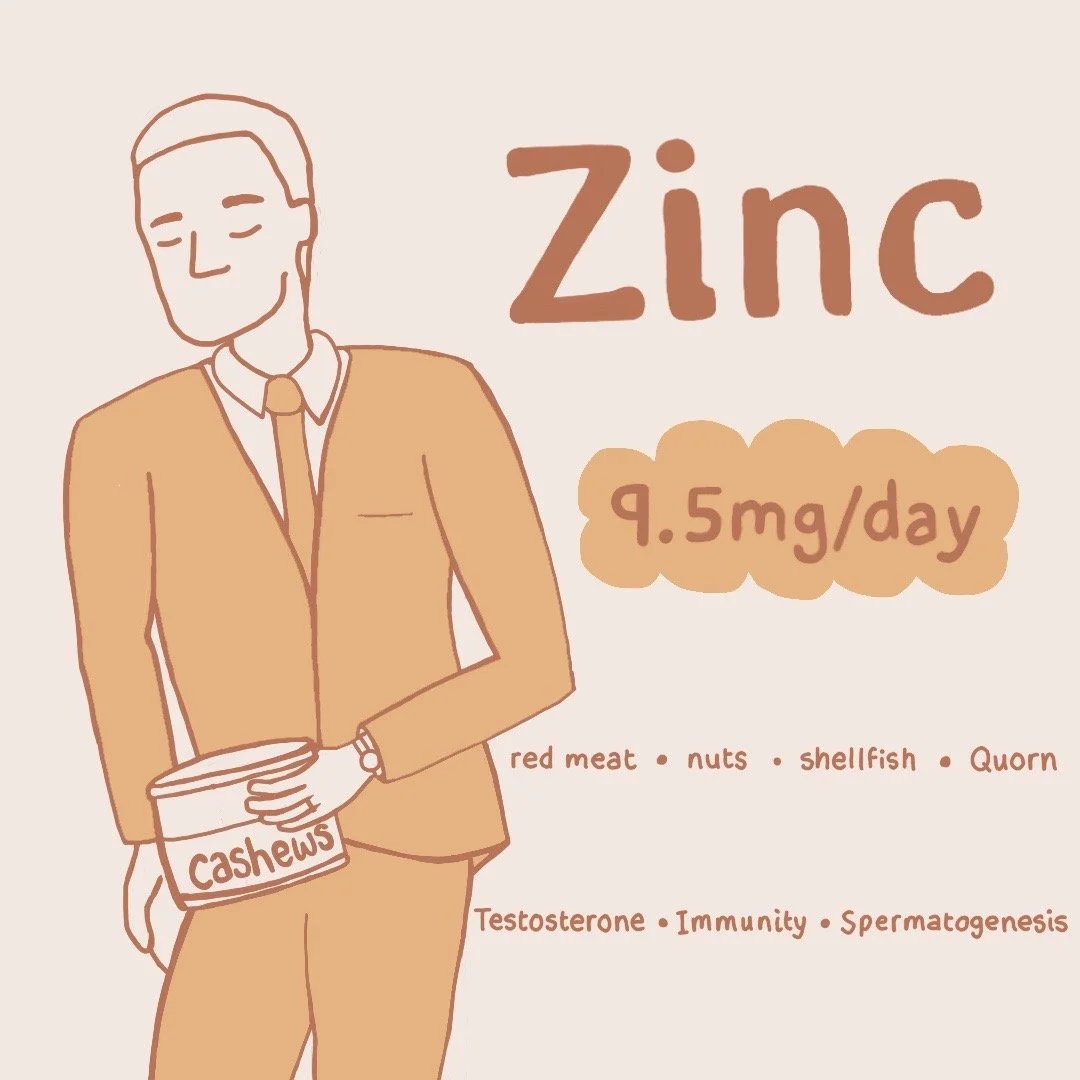Zinc & Sperm
So you read the selenium and sperm blog and now you’re curious… what other foods might affect your sperm quality?
Time to tackle Zinc.
What does Zinc normally do?
Antioxidant function - Zinc works as an antioxidant in the body. This means that it works to minimise that damage to cells that are exposed to reactive oxygen molecules (known as free radicals), in this case the sperm cells that would be damaged.
Testosterone production - Zinc is found in high concentration in the testicles, which is where testosterone is produced in men. Studies have found that depleting men of zinc (by putting them on diets containing less than recommended amounts) had significant negative short term effects on testosterone levels.
Immunity & Inflammation - zinc plays a complex role in many body systems, including the immune system, where it is needed to make sure that cells attack the correct invading germs. It is a hallmark of zinc deficiency t obe prone to infections due to compromise of the immune system. Linking back to the role as an antioxidant, Zinc supplementation has also been found to have a positive impact on the inflammatory response, where is decreases the generation of inflammatory cytokines (which are needed as part of an immune response, but need to be closely regulated as too many can cause further damage to sperm cells).
Spermatogenesis - Studies have found that adequate zinc intake and normal levels of zinc in the seminal fluid play a vital role in sperm production. Good levels of zinc in the semen is associated with good sperm count, concentration, motility (swimming ability) and morphology (normal looking).
Monitoring
Testing zinc levels in the blood is quite commonly done if there is risk of deficiency. However it is important to note that blood zinc levels by themselves are not necessarily an accurate indicator of nutrient status, because zinc is known as a ‘negative acute phase reactant’ which means that its concentration in the blood will decrease if there is inflammation in the body. Therefore, it is important the inflammation markers are tested at the same time as zinc if we are looking to identify a deficiency.
So how much should we have?
The Scientific Advisory Committee on Nutrition, who are the clever people who develop nutritional guidelines for the government, recommend that males in the UK should have 9.5mg/day of Zinc. There is some sets of people who may be vulnerable to zinc deficiency due to medical conditions, however for most of the UK population it is easily achievable to get adequate zinc from a healthy balanced diet, without the use of supplements. Good sources of Zinc include:
Red meat
Quorn meat substitute
Shellfish, including crab meat
Lentils
Nuts, including cashews, brazils & pecans
Whole wheat products such as All Bran
For example, if you were to eat 30g All Bran for breakfast, have a snack of 30g cashews in the day, and have 70g serving of beef in your evening meal, you would have achieved your daily recommended intake of zinc.
If you have questions about nutrition for sperm health, or would like 1:1 support with fertility nutrition and lifestyle, you can contact us via the website or social media.
References:
DOI: 10.1073/pnas.0900602106
DOI: 10.1016/j.jtemb.2021.126855
DOI: 10.1093/ajcn/56.1.148
DOI: 10.1097/AIA.0b013e318034194e
DOI: 10.2119/2008-00033.Prasad
PHE: 2016202
DOI: 10.1093/jn/130.5.1378S


